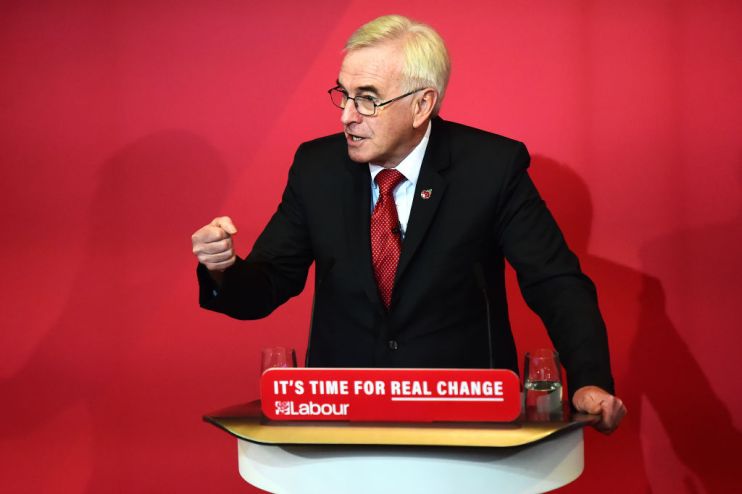Election 2019: Labour to ‘get money moving out of Whitehall and the City’

Labour’s shadow chancellor John McDonnell will today pledge to “get money moving out of Whitehall and the City”, and start nationalising key utilities, within the first 100 days of a Jeremy Corbyn government.
Read more: John McDonnell outlines plans to borrow extra £58bn for Waspi women
Speaking from London today, McDonnell will pledge to kick-start the process of nationalising vast chunks of the utilities sector as well as using Labour’s first Budget to end austerity in social security and public services, and launch a “green industrial revolution”.
He will also highlight the “urgency” of allocating money away from Whitehall and the City, setting up a National Transformation Unit before Christmas to begin that process.
The party will also start creating its National Investment Bank, a series of regional development banks and Post Bank.
“As part of Labour’s Green Industrial Revolution these new institutions will deliver finance from the City to the high street, investing in communities ignored and held down for decades,” the party said.
McDonnell will say: “When Labour puts money in your pockets, we will also put power back in your hands. You rely on and work in these services, you know them. But you’ve been ripped off and shut out from how they’re run, to protect vested interests and profits for the wealthy.
“When we win power it will be to give it to you,” he will add.
But opposition parties have questioned how feasible Labour’s plans are.
Liberal Democrat Deputy Leader, Ed Davey, said: “Labour’s plans for its first 100 days are built on a fallacy. They cannot invest vast sums in our public services while also subjecting our country to greater uncertainty as they pursue a new Brexit deal.
Read more: John McDonnell concedes antisemitism has hurt Labour’s campaign
“Their wish-list for Government grows ever longer and longer, but we know that the Institute for Fiscal Studies has said their plans aren’t credible and would simply take our country backwards.”
Main image: Getty